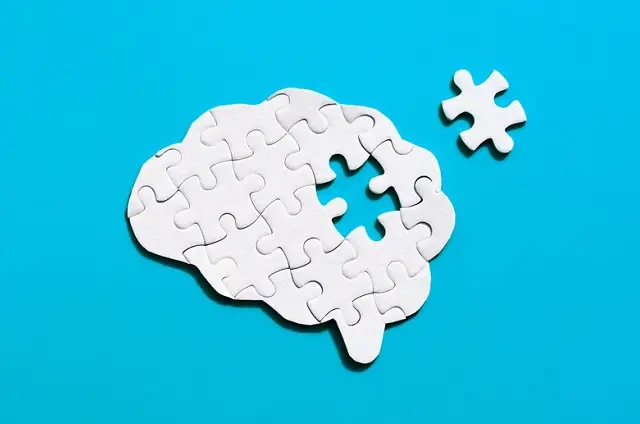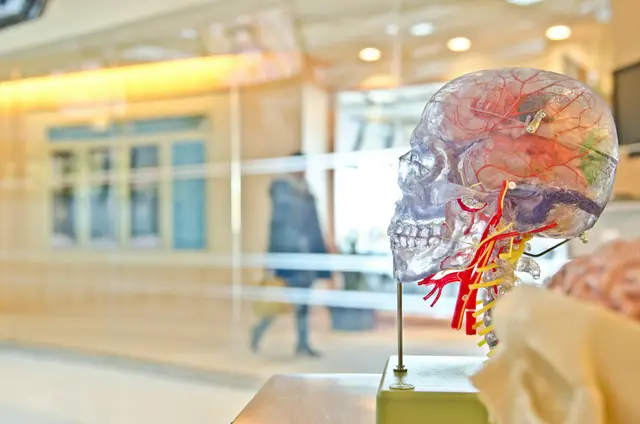Neuroscience spans various dimensions, including basic, clinical, and applied neuroscience. Basic research explores the fundamental principles of how the nervous system functions, covering areas like neurophysiology, neuroanatomy, and molecular neuroscience. Clinical neuroscience focuses on understanding and treating neurological and psychiatric disorders, requiring professionals like neurologists and neuropsychologists. Applied neuroscience research branches into diverse areas such as cognitive neuroscience, neuroimaging, and neuroengineering, which explores brain-computer interfaces and neural prosthetics. There's also neuropharmacology, studying the effects of drugs on the nervous system. Additionally, fields like neuroinformatics and computational neuroscience use mathematical models and data analysis to understand complex neural processes.
In terms of careers, a neuroscience background opens doors to a range of professions. You could become a neuroscientist, conducting research at academic institutions or in the pharmaceutical industry. Clinical paths include neurologists, psychiatrists, or neurosurgeons. Applied roles involve cognitive psychologists, neuroimaging specialists, and neuroengineers. Some also work in regulatory affairs, bioinformatics, or science communication. Neuroscience's interdisciplinary nature offers diverse opportunities for those passionate about understanding the brain and its functions.
Take time to read about different aspects of neuroscience that interest you. There are a lot of oddly specific branches of neuroscience, including neuroaesthetics (how the brain responds to art), neuroeconomics (how the brain makes financial decisions), neurotoxicology (impact of heavy metals, pesticides, and drugs on brain health), and neurogaming (how games can be used for brain rehabilitation and training). Another way to start getting involved is to take a neuroscience or neuroscience-adjacent course in your high school. Do a deep dive into neuroscience with a neuroscience internship or summer program. One of the best methods is to find a mentor who is a practicing neuroscientist or neuroscience graduate student. They can provide guidance and insights into the profession. Here are more details on some actions you can take right now.
1. Take a Class in High School
In high school, you may not typically find dedicated neuroscience courses, but you can certainly take classes that will provide you with a strong foundation in the subjects relevant to neuroscience and help prepare you for future studies in the field. Here are some classes and subjects you can consider taking in high school to prepare for a future in neuroscience:
Biology: Biology is fundamental to neuroscience. It provides the foundation for understanding the structure and function of living organisms, including the human body and the nervous system.
Chemistry: Understanding the chemical processes that occur in the brain and body is essential in neuroscience. Chemistry classes will help you grasp the basics of molecular and cellular processes.
Physics: Physics is relevant to neuroscience, especially in the context of medical imaging techniques like MRI and CT scans. A physics background can be valuable for understanding these technologies.
Psychology: Psychology courses can introduce you to the basics of human behavior and the mind. While psychology is distinct from neuroscience, it often overlaps with cognitive neuroscience.
Mathematics: A strong foundation in mathematics, particularly statistics and calculus, is crucial for data analysis and modeling in neuroscience.
Anatomy and Physiology: These classes will teach you about the structure and function of the human body, including the nervous system.
Computer Science: As computational neuroscience becomes increasingly important, a background in computer science can be valuable for those interested in modeling and data analysis.
Ethics and Philosophy: Neuroscience often raises ethical questions, and philosophy can help you think critically about these issues.
Research and Laboratory Courses: If your school offers any research or laboratory-based classes, take advantage of them. These will give you hands-on experience and an opportunity to explore your interests in a practical way.
As you advance into college, you'll have the chance to take more specialized neuroscience courses and work towards a degree in the field. High school is an excellent time to build a strong foundation in the basic sciences and critical thinking skills that will serve you well as you pursue a career in neuroscience.
2. Read a Book
For a high school student interested in neuroscience, there are several foundational texts and popular science books that can serve as excellent starting points to explore the subject. These books offer accessible explanations of key concepts in neuroscience and often provide engaging real-world examples. Additionally, we'll mention a few contemporary works that touch on more controversial or cutting-edge topics in neuroscience. Keep in mind that while these books are accessible, they still delve into scientific details and may require some background knowledge in biology.
Foundational Texts and Popular Science Books:
The Tell-Tale Brain: A Neuroscientist's Quest for What Makes Us Human by V.S. Ramachandran (2011) - This book delves into various aspects of the human brain and explores the mysteries of perception, consciousness, and self-awareness.
Phantoms in the Brain: Probing the Mysteries of the Human Mind by V.S. Ramachandran and Sandra Blakeslee (1998) - This is an engaging introduction to the fascinating world of neurology, covering topics like perception, phantom limbs, and the brain's plasticity.
The Brain That Changes Itself: Stories of Personal Triumph from the Frontiers of Brain Science by Norman Doidge (2007)- This book discusses the brain's ability to adapt and change, also known as neuroplasticity, and its implications for rehabilitation and personal growth.
The Man Who Mistook His Wife for a Hat and Other Clinical Tales by Oliver Sacks (1985)- This classic offers a collection of case studies that provide insights into the workings of the brain and its quirks.
The Brain: The Story of You by David Eagleman (2015)- In this book, Eagleman explores the wonders of the brain, covering topics such as perception, consciousness, and time perception.
Neuroscience for Dummies by Frank Amthor (2011)- As part of the "For Dummies" series, this book offers a beginner-friendly introduction to neuroscience.
Contemporary and Cutting-Edge Works:
How to Create a Mind: The Secret of Human Thought Revealed by Ray Kurzweil (2012)- This book explores the concept of reverse engineering the brain to understand how it functions and potentially replicate its capabilities in artificial intelligence.
The Age of Em: Work, Love, and Life when Robots Rule the Earth by Robin Hanson (2016)- This speculative work explores the potential future of neuroscience and artificial intelligence, including the concept of "whole brain emulation."
The Gene: An Intimate History by Siddhartha Mukherjee (2016)- While not strictly a neuroscience book, it discusses the role of genetics in shaping the brain and behavior, making it relevant to the field.
The World in Six Songs: How the Musical Brain Created Human Nature by Daniel J. Levitin (2008)- A neuroscientist and musician, Levitin explores the relationship between music and the human brain, arguing that music has played a significant role in shaping human nature and evolution.
To stay up-to-date with the most current neuroscience literature, you should read academic journals such as Neuron, Nature Neuroscience, Science, The Journal of Neuroscience, and Trends in Neuroscience. PubMed is also a widely-used, free resource for accessing abstracts and full-text articles. Google Scholar is another excellent resource. ResearchGate and Academia.edu are online platforms that allow researchers to share their work. While you can access abstracts and some full-text papers for free, access to certain journals or specific articles may require a subscription or payment. You may want to talk to your high school teachers or school librarian for access.
3. Extracurricular Study
Extracurricular activities are not just about building your resume but also about genuinely exploring your interests and passions. If chosen wisely, they can help you develop essential skills, make connections, and gain a deeper understanding of neuroscience before pursuing it at the college level. A lot of these options are also great for showcasing your own neuroscience research project, should you choose to go that route.
Science, Psychology, or Neuroscience Clubs: Join or start a club at your school that focuses on various scientific disciplines, including biology, psychology, and neuroscience. You can organize discussions, guest speakers, and hands-on experiments.
Science Olympiad: Participate in your school's Science Olympiad team or, if available, in local, regional, or national Science Olympiad competitions. This will expose you to a wide range of scientific topics, including neuroscience-related events.
Science Competitions: Consider entering science competitions like the Regeneron Science Talent Search, Intel International Science and Engineering Fair (ISEF), or local science fairs. You can choose neuroscience-related topics for your projects.
Science Outreach Programs: Many universities and institutions have outreach programs that involve high school students in science education and communication. You can volunteer to lead neuroscience-related workshops for younger students or the community.
Online Courses and Competitions: Participate in online courses or competitions related to neuroscience through platforms like Coursera, edX, or the Brain Bee competition, which tests your knowledge of neuroscience.
Reading and Discussion Groups: Create or join a neuroscience book club or discussion group with classmates to explore and discuss the books and articles you’re reading.
Internships: Seek internships or shadowing opportunities with practicing neuroscientists. This firsthand experience can give you insight into the day-to-day work of professionals in the field.
TED-Ed Clubs/Public Speaking: If your school has a TED-Ed Club, consider joining it and exploring topics related to the brain and neuroscience. You can even develop and deliver your own TED-style talk on a neuroscience subject you're passionate about.
Writing for School Publications: If getting up and talking in front of people is not your thing, you can contribute articles or essays to your school newspaper or magazine on neuroscience-related subjects. This can help you develop your writing skills and share your passion for the field.
Create a Neuroscience Blog or Podcast: Start a blog or podcast where you discuss topics, share book reviews, or interview professionals in the field. This can showcase your interest and communication skills.
Even though neuroscience is a highly specialized topic, you still have many options for conducting psychology research as a high school student. There are pre-college programs you can attend in the summer, local community college, internship, virtual programs you could attend after school or as a homeschooling student, or independent research with a professor or mentor. If you want to conduct your own experiments, we recommend that you have a qualified adult advisor you can consult. You may need access to expensive equipment or to learn lab skills, and a mentor can help you troubleshoot these and other challenges. Also, networking with professionals in the field and seeking guidance from experienced mentors can be incredibly helpful for your future studies and career.
Find research programs close to home
We’ll go into summer neuroscience programs in more depth in the next section, but if you want to find all types of established neuroscience research opportunities close to home, our High School Student Research Opportunities Database is an excellent resource. Click on your state, then search based on your location, institution, event type (in-person or virtual), and tuition (paid or free).
Work with a professor
If you have a clear project idea, you can reach out to professors in your field to see if they are open to collaborating with you. Refer to our Guide to Cold-Emailing Professors (written by Polygence literature research mentor Daniel Hazard, a Ph.D. candidate at Princeton University).
Engage in your own research project
Students with initiative and focus can opt to tackle research independently. Carly Taylor, a Stanford University senior who has completed several research projects this way, outlined a guide about how to write a self-guided research paper. By reading it, you’ll get a better understanding of what to expect when taking on this type of project. If you would like a little guidance and support, you can also choose to work with one of our Polygence neuroscience mentors.
Enter a competition
The requirements and deadlines that competitions require you to meet provide a very helpful structure to keep your psychology research moving forward. For some ideas, check out our Top Psychology and Neuroscience Competitions for High School and Middle School Students. Another benefit to attending a competition is that you will meet other students, teachers, and even experts in the field you love most.
Here are some top picks for summer neuroscience research programs. We chose them based on a combination of their affordability, name recognition, social opportunities, and academic rigor.
1. Clinical Neuroscience Immersion Experience (CNI-X)
Hosting institution: Stanford University
Cost: $1,295-$2,590
Format: Online or in-person (Stanford, CA)
Application deadline: Early March
If you’re primarily interested in medicine, this is a great pick for you. This 10-day program provides you with basic exposure to the study of neuroscience, psychiatry, and brain science in addition to a potential chance to finish a cooperative capstone project. You’ll get the chance to work with Stanford professors and researchers and engage in exciting and cutting-edge research in the standards of neuroscience, clinical neuropsychiatry, and other areas within neuroscience research. In addition to participating in interactive lectures, you would also work in small teams to design solutions to pressing issues related to psychiatry, psychology, and neuroscience. Check the site for the most current application information.
2. Neuroscience Camp
Hosting institution: Drexel University College of Medicine
Cost: $2,200
Format: In-person (Philadelphia, PA)
Application deadline: Early April
This 2-week day camp (it’s not residential) is composed of a series of lectures (subjects include brain anatomy, cellular neuroscience, sensory processing, and brain machine interfacing), lab demonstrations, then hands-on lab research. You’ll work on a group project that you will present to the faculty. There will also be field trips to brain exhibits at the Franklin Institute and the Academy of Natural Sciences. Check the site for the most current application information.
3. Neuroscience Institute
Hosting institution: Wake Forest University
Cost: $3,000
Format: In-person (Winston-Salem, NC)
Application deadline: Rolling admissions
Roll up your sleeves because this 1-week program kicks off by exploring neuroanatomy via a sheep brain dissection. You’ll also be learning about neuropharmacology (how drugs affect the brain) and how sensory systems detect stimuli, as well as visiting neuroscience labs to see how human functional magnetic resonance imaging (fMRI) and electroencephalography (EEG) work. Check the site for the most current application information.
For all our picks, check out our Top 20 Neuroscience Summer Research Opportunities for High School Students.
If you’re searching for a virtual neuroscience research opportunity, consider doing a project through Polygence with one of our neuroscience mentors.
A few of the summer programs we found were either paid or unpaid internships.
1. BRAINYAC
Hosting institution: Columbia University
Cost: Paid a stipend
Format: In-person (New York, NY)
Application deadline: Early April
BRAINYAC provides exceptional mentorship at no cost to the student. The Zuckerman Institute’s Brain Research Apprenticeships offers New York City high-school students a hands-on summer research experience in a Columbia laboratory. Each student is matched with a Columbia neuroscientist who guides the student through a research project for 7 weeks. Participants learn key skills required to work in a research environment, and the experience looks great on a college application. Check the site for the most current application information.
2. Summer Research Internship
Hosting institution: Max Planck Florida Institute for Neuroscience (MPFI)
Cost: Full-time paid internship
Format: In-person (Jupiter, FL)
Application deadline: Early March
Though we’re aware the eligible students for this program is smaller than most (you must be a junior or senior at a Palm Beach County or Martin County high school in Florida), it’s a great learning experience and students are fully compensated for their work. For 6 weeks, you will work directly with MPFI researchers on active projects doing “wet lab” techniques such as genetic engineering, microbiology preparations, histological staining, and microscopy. Check the site for the most current application information.
3. Research in Science & Engineering (RISE) Practicum Track
Hosting institution: Boston University
Cost: Paid a stipend of $1,500
Format: In-person (Boston, MA)
Application deadline: Early February
If you want to really hone your research skills in a lab setting before you get to college, this 6-week computational neurobiology program gives you the chance to conduct it in a structured lab setting. Your lab work will be combined with lectures and workshops on the scientific process, research ethics, reading a research paper, presenting scientific research, and networking in the scientific community. You’ll also tour biotech companies in the Boston area and get a behind-the-scenes look at how they operate. Check the site for the most current application information.
For a full list of internship opportunities, read out post on Top Neuroscience Internships for High School Students.
Neuroscience has many different fields of study that you can dive into (e.g., cognitive, clinical, behavioral, systems, neuroimaging, neuropharmacology, neuroendocrinology, neuroethology, etc.). Since neuroscience research often requires expensive equipment to measure different parts of the brain and the body, the project ideas in this article will focus primarily on literature reviews, which you can do from anywhere.
Polygence Scholars Are Also Passionate About
A literature review is a synthesis of key work that has been conducted about a topic over several years. Doing the research to conduct a literature review will deepen your understanding of your chosen neuroscience topic.
Behavioral Neuroscience Project Idea: To Fight or Flight? That is the question.
Our brains are wired from birth to respond to threats found in our immediate environment. These threat-activated circuits are responsible for regulating what is commonly referred to as our "Fight or Flight System." However, not everyone responds the same way to the same exact threat, and not all behavioral responses are appropriate for the given conditions (e.g., fleeing from a friendly chihuahua may not be adaptive). What accounts for these differences in behavior? One explanation for these observed distinct behaviors is differences in past experience. How does previous experience affect our threat response?
In this project, you will read various peer-reviewed journals to gain an understanding of how researchers have looked at experience (i.e. stress) and its effect on brain activity in the presence of threats. You can explore this question by looking into 1) Human research of patients with stress-induced psychiatric disorders (e.g., depression, bipolar disorder, PTSD). 2) Mouse research literature to learn about laboratory techniques used to assess defensive behaviors in response to threats.
Idea by neuroscience research mentor Salvador
Molecular/Cellular Neuroscience Project Idea: Optogenetics
One of the coolest and most widely used techniques in neuroscience research today is optogenetics, which gives us the ability to control the activity of brain cells with a flash of light. In this project, you will research: How light-sensitive proteins were discovered and the basic principles of how they work in genetically-modified neurons; How optogenetics is used in research experiments to answer different types of questions in neuroscience; Some of the most important scientific discoveries from optogenetics and how optogenetics has changed the way we think about the brain.
Idea by neuroscience research mentor Marley
Perception Neuroscience Project Idea: The Neuroscience of Sensory Reactivity
How does atypical sensory reactivity change our behavior? Our senses are powerful, and they can change the way we perceive and navigate through the world. When senses are hyper- or hypo-sensitive, how does this affect people? Select a specific sensory pathway that you are interested in and examine how it is disrupted in a number of conditions, such as neurodevelopmental disorders.
Idea by neuroscience research mentor Jacqueline
Check out even more project ideas on the 21 Neuroscience Research and Passion Project Ideas for Middle and High School Students post, which groups ideas into cognitive, clinical, molecular/cellular, perception, affective, behavioral, and more.
You can also brainstorm your own project ideas based on what human behaviors, motivations, or trends interest you. If you want help narrowing down your neuroscience topic, the Pathfinders program gives you the chance to meet with three different mentors who specialize in your fields of interest. You can discuss your project ideas with them, and they can help you grow your idea, discover new research techniques, and point the way to great resources and alternative options.
Here are some inspiring neuroscience projects done by some of our Polygence Scholars.
The Effect of Childhood Trauma on Cortisol Levels
Tahmid conducted a literature review on childhood trauma and its influence on cortisol levels, He discovered that there are mixed findings that can be attributed to individual differences in how the stress response system adapts to different traumatic experiences. While some studies indicate increased or blunted cortisol levels, others suggest no significant correlation, and variations exist based on the specific type of trauma. You can read all of his findings here.
CRISPR-based therapeutic targeting of ADHD
Maria conducted a literature review to explore the latest updates on using CRISPR/Cas9 in the treatment of ADHD. Her research found that ADHD is believed to have a genetic component, with the disorder running in families, and it also suggested non-genetic factors could contribute. While gene therapy and CRISPR shows promise in treating ADHD, Maria also emphasized the ethical issues researchers face when utilizing CRISPR technologies for this purpose, indicating the need for further investigation. Her research will be published in the International Youth Neuroscience Association.
Bilingualism in the Brain
Simone wanted to know whether a bilingual brain processes linguistic information differently from a monolingual brain, even when a bilingual is only using one language. In her study, she discussed the brain areas involved in language production and comprehension and explored how monolingual and bilingual brains function. She discovered that bilinguals do process language differently than monolinguals. You can read about all her findings here.
Check out all the neuroscience projects done by Polygence Scholars.
As mentioned earlier, conducting clinical neuroscience research typically requires access to labs, equipment, and specialized training, which may be challenging for high school students. In contrast, a literature review allows you to delve into existing research, enhancing your understanding of the field and honing critical analysis skills without the need for extensive resources. A literature is a type of secondary research that describes how different studies relate to each other and how the field has developed over time.
Begin by clearly defining your research question or topic, focusing on a specific aspect of neuroscience. Next, conduct thorough research, collecting and critically assessing relevant academic articles and books.
As you gather information, you can begin outlining your research paper. Your paper will usually have six sections: Materials, Methods, Data, Discussion, and Conclusion. You’ll also need to write an Introduction that opens with the problem being addressed, any existing research, and an overview of your research—all of which is best written about after you’ve finished conducting all your research. Another important piece to your paper is your thesis statement. You can always come up with a preliminary or working thesis and then refine it or completely revise it as you learn more. You also may need to write an abstract. At its core, an abstract is a standalone piece of writing that offers a snapshot of the problem, methodology, findings, and conclusions. If you need more general guidance overall, here’s a great article on how to write a good research paper.
If you have some ideas and want the support of a skilled neuroscience mentor, apply to be a part of our flagship neuroscience mentorship program.
Once you’ve researched, written, and perfected your research paper, it’s time to introduce it to the world. You could enter it into a competition, as mentioned earlier in this post, create a podcast, do a YouTube video about it, or publish it in a journal. Publishing your research in a peer-reviewed journal can take the great work you’ve already done and add credibility to it. It also makes a stronger impression than unpublished research. The process of having your work reviewed by advanced degree researchers can be a valuable experience in itself. You can receive feedback from experts and learn how to improve upon the work you’ve already done.
Here are some publications you could look into.
International Youth Neuroscience Association Journal
We’ve had students recently publish in this peer-reviewed journal. Here’s an example of Nevenka’s research that was published in the November 2022 issue of the journal.
Cost: Free
Deadline: Rolling
Subject area: Neuroscience
Type of research: Research papers
The Journal of Emerging Investigators (JEI)
JEI is an online, peer-reviewed journal that publishes research by middle and high school students in various scientific disciplines, including neuroscience. Please note that JEI requires that a teacher, mentor, or Principal Investigator of a lab submit your research on your behalf.
Cost: Free
Deadline: Rolling
Type of research: Original research in the biological and physical sciences that is written by middle and high school students.
Journal of High School Science
The Journal of High School Science is a peer-reviewed quarterly publication showcasing high school student research in the realm of science, technology, engineering, arts, and mathematics.
Cost: Free
Deadline: Rolling
Type of research: STEAM-based research or innovations by high school students.
Regarding getting your project accepted and published at these or any other peer-reviewed journal: “Be prepared for the possibility of rejection or revisions. Scientific publishing is a competitive process, so maintain a positive attitude and be persistent in your efforts to improve and disseminate your research.” (Quote from The Journal of High School Science website)
For more publishing opportunities, read Top 5 Neuroscience Journals for High School Students








































































